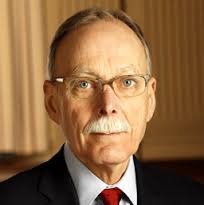Barrock Lecture Explores Collision Between Criminal Law and Neuroscience
 “Be of good cheer; everything is going to be all right.” With these words last week, Stephen Morse sought to reassure his audience at Marquette Law School that advances in neuroscience will not ultimately upset traditional understandings of criminal responsibility. Morse, a professor at the University of Pennsylvania, was in town to deliver Marquette’s annual Barrock Lecture on Criminal Law. A podcast of Morse’s engaging presentation is here.
“Be of good cheer; everything is going to be all right.” With these words last week, Stephen Morse sought to reassure his audience at Marquette Law School that advances in neuroscience will not ultimately upset traditional understandings of criminal responsibility. Morse, a professor at the University of Pennsylvania, was in town to deliver Marquette’s annual Barrock Lecture on Criminal Law. A podcast of Morse’s engaging presentation is here.
Neuroscience is increasingly giving us the ability to understand — and even, in the form of colorful MRI images, to see — some of the specific biological processes in the brain that produce thought and action. This suggests the possibility of “my brain made me do it” defenses, especially in cases involving defendants who have demonstrable neurological abnormalities. If a particular aspect of a defendant’s brain can be identified as a “but for” cause of his criminal behavior, then should not that provide an excuse?
Morse argues that this defense proves too much.
